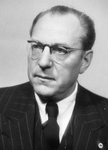1939 Weranian federal election
| |||||||||||||||||||||||||||||||||||||||||||||||||||||||||||||||||||||||||||||||||||||||||||||
All 584 seats to the House of Deputies 292 seats are needed for a majority in the House of Deputies | |||||||||||||||||||||||||||||||||||||||||||||||||||||||||||||||||||||||||||||||||||||||||||||
|---|---|---|---|---|---|---|---|---|---|---|---|---|---|---|---|---|---|---|---|---|---|---|---|---|---|---|---|---|---|---|---|---|---|---|---|---|---|---|---|---|---|---|---|---|---|---|---|---|---|---|---|---|---|---|---|---|---|---|---|---|---|---|---|---|---|---|---|---|---|---|---|---|---|---|---|---|---|---|---|---|---|---|---|---|---|---|---|---|---|---|---|---|---|
| Turnout | 16,117,435 (79.81%) | ||||||||||||||||||||||||||||||||||||||||||||||||||||||||||||||||||||||||||||||||||||||||||||
| |||||||||||||||||||||||||||||||||||||||||||||||||||||||||||||||||||||||||||||||||||||||||||||
File:1939 election map.png | |||||||||||||||||||||||||||||||||||||||||||||||||||||||||||||||||||||||||||||||||||||||||||||
| |||||||||||||||||||||||||||||||||||||||||||||||||||||||||||||||||||||||||||||||||||||||||||||
The 23rd federal election was held in the Weranian Confederation for the House of Deputies (the lower house of the Bundestag) on the 14th March 1939. All 584 members of the House of Deputies were elected under a system of proportional representation with each regierungsbezirke treated as an electoral districts. These would be the second elections held following the Great War after the expiration of the term of the House of Deputies.
The election came as the country suffered from an inflationary spiral in the post-war period triggered by the devaluation of the mark and the removal of wartime price controls. The outgoing centrist government of the Catholic Social, Social Democratic and National Liberal parties led by NLP leader Walther von Pittermann was unpopular with its slim parliamentary majority making it increasingly ineffective in passing legislation. In March a dispute over planned wage cuts in line with the government's incomes policy caused the left-wing of the SPO to trigger a vote of no confidence against the von Pittermann cabinet causing it to collapse.
Persistent economic woes, labour disputes and social polarisation had raised the prospect of left-wing government gaining power. The right however were divided with the National Liberals advocating for a centrist government whilst the Catholics and the conservatives advocated for a union of the right. The centre-left Radical party meanwhile was vague surrounding the prospect of entering a government including or supported by the OSAI instead supporting social reform.
The election saw the parties of the outgoing government - the KSP, NLP and SPO - losing seats whilst both the OSAI and Radicals gained, making it the best result for left-wing parties since the 1918 election. The Ruttish Sotirian Democratic Party entered the Bundestag for the first time. As a result the Radicals under Lothar Kuehnelt formed a coalition government with the SPO that relied on the OSAI for parliamentary supporting, making it the first centre-left government in Werania since 1919.
Electoral process
The election was held using a system of proportional repsentation that had been introduced in 1905. The country had 76 electoral districts based on the regierungsbezirke with no electoral threshold. Seat totals were calculated via the greatest divisors method.
Background
The previous election had been held in 1935 shortly after the conclusion of the Great War. The parties of the left - the Weranic Section of the Workers' International, the Social Democratic Party of Werania and the Radical Party - gained a majority but due to pressure from the monarch Leopold IV and mutual antipathy between the parties a centrist coalition of the Catholics, Social Democrats and the National Liberals was formed under the wartime premier Otto Röttgen. Röttgen and Leopold IV had an ambitious programme of reform that sought to reshape Weranian politics but the assassination of Leopold IV in September 1936 and Röttgen's resignation five months later led to the reform programme to halt under premier Walther von Pittermann who focused on the immediate economic troubles in Werania.
Parties
| Affiliation | Party | Ideology | Spitzenkandidat | 1925 result | In government | ||
|---|---|---|---|---|---|---|---|
| Left | 
|
Weranic Section of the Workers' International | Socialism, Revolutionary socialism | Dietrich Gotthold | 183 / 584
|
||
| Centre-left | 
|
Social Democratic Party of Werania | Social democracy, Reformism | Jochen Kammerer | 67 / 584
|
||

|
Radical Party | Radicalism, Anti-clericalism | Lothar Kuehnelt | 60 / 584
|
|||
| Centre-right | National Liberal Party | National Liberalism, Classical liberalism | Walther von Pittermann | 60 / 584
|
|||

|
Ruttish Sotirian Democratic Party | Ruttish regionalism, Sotirian Democracy | N/A[a 1] | 0 / 584
|
|||

|
Catholic Social Party | Political Catholicism, Sotirian Democracy | Franz Rössler | 167 / 584
|
|||
| Right | 
|
Weranian Fatherland Party | National conservatism, Monarchism | Karl Theophil von Pölten | 47 / 584
|
||
Campaign
Results
| Party | Votes | % | Seats | +/− | |
|---|---|---|---|---|---|
| Weranic Section of the Workers' International | 5,067,582 | 31.44 | 191 | +8 | |
| Catholic Social Party | 4,268,317 | 26.48 | 160 | -7 | |
| Radical Party | 1,876,849 | 11.64 | 70 | +10 | |
| Social Democratic Party of Werania | 1,447,935 | 8.98 | 54 | -13 | |
| National Liberal Party | 1,279,584 | 7.94 | 48 | −12 | |
| Weranian Fatherland Party | 1,168,573 | 7.25 | 44 | −3 | |
| Ruttish Sotirian Democratic Party | 475,804 | 2.95 | 17 | +17 | |
| Others | 284,739 | 1.77 | 0 | - | |
| Invalid/blank votes | 248,052 | – | – | – | |
| Total | 16,117,435 | 100 | 584 | ±0 | |
| Registered voters/turnout | 20,195,832 | 79.81 | – | – | |
Aftermath
Outcome
Government formation
- ↑ The SDT did not nominate a spitzenkandidat.






